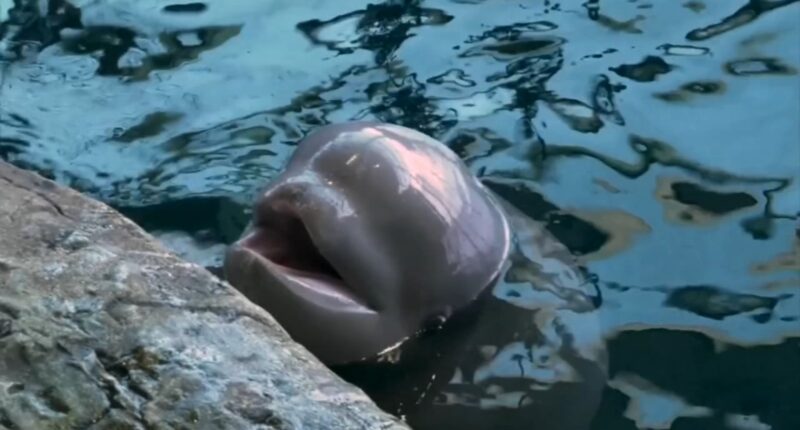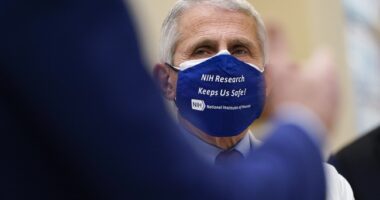CHICAGO — Charlie Jacobsma slapped the surface of a pool enclosure at Chicago’s Shedd Aquarium and scanned the water for movement.
Shortly after, a young beluga whale stuck its head out of the water, appearing to smile with its mouth wide open. Jacobsma couldn’t hide his joy and started talking lovingly to the whale calf, much like a parent would to their young child.
Shedd’s animal care team described its newest resident, born to 35-year-old resident beluga Naya in July 2024, as just that.
In describing the calf, Jacobsma, who oversees animal behavior and training at Shedd, likened it to a toddler in the process of learning to speak and making sounds. He explained that the calf is continuously evolving and maturing, similar to a growing child.
The calf received several herrings from Jacobsma, who noted the baby whale has yet to grow in his teeth.
Every birth is a significant event for the team at the aquarium, and the recent arrival of the first beluga calf at Shedd in four years was no exception. Over the years, the Shedd staff have been present for the birth of 15 beluga whales since 1991.
There was an all-hands-on-deck approach that summer evening, with divers in the water to ensure success. Bella, another female in the enclosure, helped the newborn to the surface before Naya took over.
Baby boy beluga – his current moniker – is slowly being introduced to the rest of Shedd’s pod of eight whales. Aquarium members are voting on options for the calf’s name.
In the wild, belugas live in remote arctic and sub-arctic waters where it is hard to gather research. Much of what humans know about belugas, especially births, comes from aquariums, Jacobsma said.
The largest beluga whales at the aquarium have grown as long as 14 feet (4.26 meters) and weigh over 2,000 pounds (900 kilograms), and it is not uncommon for them to live into their 30s under human care, according to Kayley Galassini, a Shedd spokesperson. Some of the belugas born at Shedd are moved to other accredited aquariums once they have reached maturity, she said.
Shedd’s animals are trained to voluntarily participate in their own healthcare, so staff are able to monitor pregnancies through ultrasounds and other care.
What surprises Jacobsma about this young whale and the rest of the Shedd’s pod?
Tongue tickles.
“I don’t know who the first person was to put their hand in a beluga’s mouth to figure it out, but it’s very sensitive in their mouth, probably from the prey that they eat at the bottom of the ocean,” Jacobsma said. “It’s almost like petting a dog or a cat, and you’ll see them come up and want to interact with us and open up their mouth wide for those tongue tickles.”
Copyright © 2025 by The Associated Press. All Rights Reserved.

















